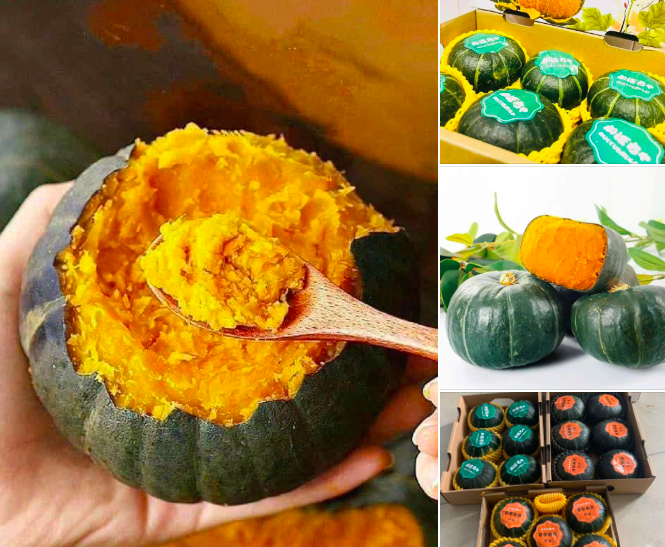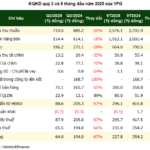Sellers in the Co Nhue residential area in Bac Tu Liem District, Hanoi, are advertising a type of squash as the “world’s tastiest.” It is being sold by Ms. H.N. for 65,000 VND (about 2.70 USD) for two pieces.

Chinese squash being sold on online markets. Source: Screen capture
Ms. N. introduced this squash as the Jeju variety grown in China. The retail price is 40,000 VND (about 1.65 USD) per piece, weighing 300-400 grams. However, if you buy in bulk, the price is lower.
“I sell about 40 to 50 pieces a day. Many people are curious about the unique flavor of this fruit, so they buy it to try,” said Ms. N. However, when asked about the traceability stamps and the origin of the squash, Ms. N. did not respond.
According to several sellers, this type of squash is advertised as edible with its skin on. When steamed or baked, it has a chestnut-like flavor. It can also be used as baby food or in adult meals.
Moreover, as the name of this squash, Jeju, sounds like a famous island in South Korea, many consumers are intrigued and want to try it. As a result, this chestnut squash has gone viral in online markets.
In an interview with NLD, Mr. Nguyen Thanh Binh, Chairman of the Vietnam Vegetables and Fruits Association, said that this Chinese squash has been imported into Vietnam for several years. However, due to the large volume and extensive advertising by sellers this year, it has become a trending product.
According to Mr. Binh, Vietnam has been cultivating various squash varieties, but we have not been able to grow this chestnut-flavored squash. Therefore, consumers are curious about its unique flavor.
“Consumers buy it to try, and then they compare it with domestic products to decide which one to choose in the long term,” Mr. Binh added.
The chairman of the Vietnam Vegetables and Fruits Association also stated that in trade, there is a two-way exchange, so it is impossible to ban the import of Chinese vegetables and fruits. However, Vietnamese authorities need to tightly control the quality of these imports.
“Imported vegetables and fruits must be inspected for quality and safety for consumers, and substandard products should be returned,” he emphasized.
For consumers, the chairman advised purchasing products with clear traceability stamps and choosing reputable distribution agents committed to quality assurance.
On August 22, the Economic Police of Tay Ho District, in coordination with Team 9 of the Hanoi Market Management Department, inspected a business establishment trading in imported fruits in Tu Lien Ward, Tay Ho District, Hanoi. The representative of the establishment, N.V.D. (born in 2003), resides in Co Bi Commune, Binh Giang District, Hai Duong Province.
The authorities discovered 25 boxes of squash, with five pieces per box, all labeled in foreign languages and without any documents proving their legality. These were determined to be smuggled goods.




































